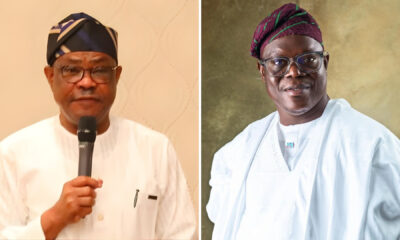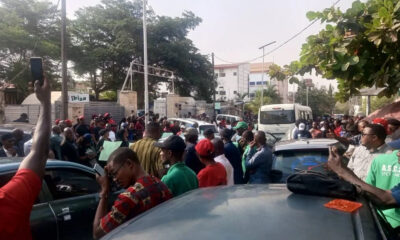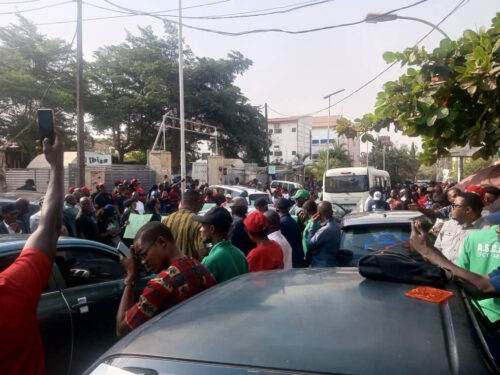BIG STORY
Petrol Supply Disruption Imminent As PENGASSAN Begins 3-Day Warning Strike

- /home/porsch10/public_html/wp-content/plugins/mvp-social-buttons/mvp-social-buttons.php on line 27
https://porscheclassy.com/wp-content/uploads/2016/09/pengassan-1-650x400-e1597309200387.jpg&description=Petrol Supply Disruption Imminent As PENGASSAN Begins 3-Day Warning Strike', 'pinterestShare', 'width=750,height=350'); return false;" title="Pin This Post">
- Share
- Tweet /home/porsch10/public_html/wp-content/plugins/mvp-social-buttons/mvp-social-buttons.php on line 69
https://porscheclassy.com/wp-content/uploads/2016/09/pengassan-1-650x400-e1597309200387.jpg&description=Petrol Supply Disruption Imminent As PENGASSAN Begins 3-Day Warning Strike', 'pinterestShare', 'width=750,height=350'); return false;" title="Pin This Post">
-

 BIG STORY4 days ago
BIG STORY4 days agoLagos Couple Stages Self-Kidnap To Raise Funds For Husband’s US Return Ticket, Arrested With N10m Ransom
-

 NEWS5 days ago
NEWS5 days agoAdron Homes Unveils “Love for Love” Valentine Promo with Exciting Discounts, Luxury Gifts, and Travel Rewards
-

 BUSINESS3 days ago
BUSINESS3 days agoFIRST HOLDCO PLC – TAKING THE BULL BY THE HORN WITH A RECORD IMPAIRMENT CHARGE; GROWS GROSS EARNINGS TO N3.4 TRILLION FOR THE UNAUDITED FULL YEAR ENDED DECEMBER 31, 2025.
-

 ENTERTAINMENT1 day ago
ENTERTAINMENT1 day agoBurna Boy, Davido, Wizkid, Ayra Starr Lose At 2026 Grammy Awards
-

 BIG STORY6 hours ago
BIG STORY6 hours agoUS Set To Deport 79 Nigerians On ‘Worst-Of-The-Worst’ Criminal List [Names Attached]
-

 ENTERTAINMENT1 day ago
ENTERTAINMENT1 day agoTinubu Hails Fela’s Lifetime Grammy Achievement Award, Says He Was The ‘Fearless Voice Of The People’
-

 POLITICS4 days ago
POLITICS4 days agoAPC Engaging Wike To Resolve Rivers Crisis, It Will Be Settled Amicably —– Ajibola Basiru
-

 BIG STORY4 days ago
BIG STORY4 days agoResident Doctors Give Federal Government Four Weeks To Meet Demands

















